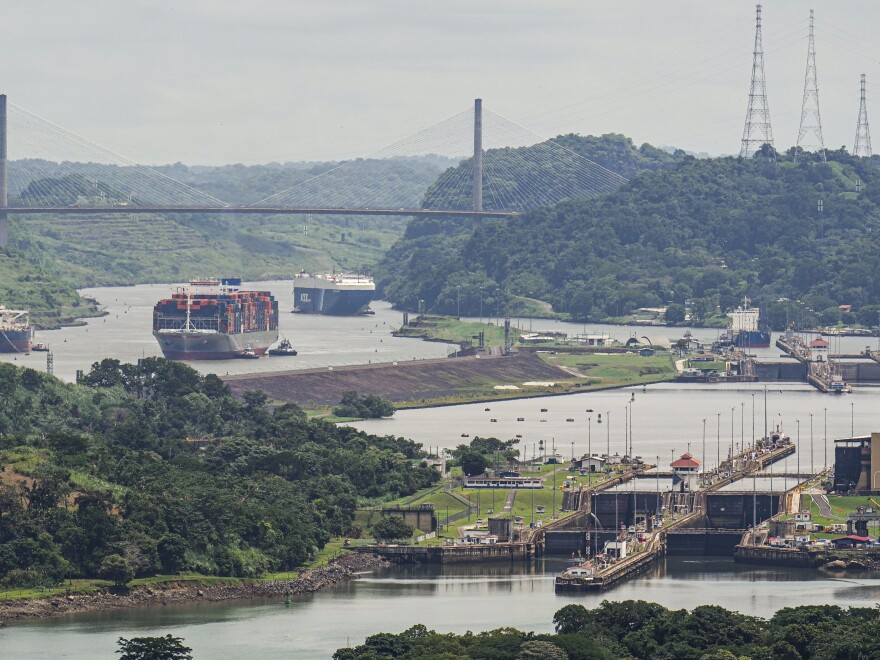The United Nations At the United Nations on Monday, the United States and China battled over the Panama Canal. The United States warned that Beijing’s control over the vital waterway may jeopardize international trade and security, while China accused the United States of using the accusations as a pretext to seize control of the canal.
Jos Ra l Mulino, the president of Panama, emphasized the canal’s neutrality and his nation’s sovereignty of the waterway connecting the Atlantic and Pacific seas during the altercation, which occurred during a U.N. Security Council meeting.
Mulino chaired a meeting on maritime security challenges during Panama’s council chairmanship this month. These include transnational crime, armed robbery, piracy, and cybercriminals using artificial intelligence as a weapon to target ports with “minimal cyber security, maximum exposure,” according to Interpol Secretary General Valdecy Urquiza.
Even before he was elected president last November, U.S. President Donald Trump put Panama in the public front by saying that his nation ought to think about regaining control of the Panama Canal and accused Panama of giving up power to China.
In an effort to make it easier for military and commercial ships to move between its shores, the United States constructed the canal in the early 1900s. President Jimmy Carter signed a contract in 1977 that gave Panama control of the river in 1999.
The council was reminded by China’s U.N. Ambassador Fu Cong that “Panama has consistently and effectively managed the canal, making significant contributions to global shipping and trade.”
“China has always respected the permanent neutrality of the canal and firmly supports Panama in safeguarding its sovereignty over the canal to ensure its openness and smooth operation,” he stated.
In her subsequent remarks, acting U.S. Ambassador Dorothy Shea criticized China, citing its “outsized influence over the Panama Canal area, especially over critical infrastructure and port operations.”
In reference to its claims in the South China Sea, she stated, “China’s aggressive actions and expansive and unlawful maritime claims demonstrate its threat to maritime security and commerce.” According to her, the United States denies these allegations and backs nations that disagree with them.
“China’s influence in the canal area is not just a risk to Panama and the United States, but rather a potential threat to global trade and security,” Shea stated.
The Hong Kong-based port operator at either end of the canal has been under pressure from the Trump administration to sell those holdings to a U.S. consortium that includes BlackRock Inc.
Although U.S. Defense Secretary Pete Hegseth visited Panama in April and reached an agreement with Mulino to increase security coordination, Panama has strongly opposed a control of the canal. Significant demonstrations were held in the capital of Panama as a result of the pact, which also grants American forces access to vital air and naval facilities in the Central American country.
After all council members spoke, China’s Fu took the floor to address Shea’s charges, this time criticizing the Trump administration.
“The United States’ fabrication of lies and groundless attacks against China are nothing but a pretext for seeking control of the canal,” he stated.
In the South China Sea region, the U.S. deployment of offensive weapons has been dubbed “the biggest disrupter of peace and stability” by the Chinese envoy, who also accused the administration of increasing the hazards to international maritime security.
“China firmly opposes economic coercion and bullying practices and urges the United States to stop fabricating rumors, lies and creating trouble,” Fu stated.
In response, Murillo stated that he wished to emphasize Panama’s sovereignty “in terms of the ownership of the canal” and the global agreement that oversees its management. He referred to the neutrality of the canal as “the only and the best defense” against any dangers, whether local or international.
Copyright 2025 NPR






